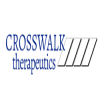Dive Brief:
- Health authorities in Germany and France reached coverage decisions on newly approved cancer drugs much sooner than their counterparts in England and Scotland, new research presented Oct. 19 at the annual meeting of the European Society for Medical Oncology showed.
- Following EU approval, new drugs for solid tumors secured reimbursement in Germany and France between two and three times as quickly as in England and Scotland. In the case of England, the median time from approval to a reimbursement decision stretched longer than 13 months.
- Researchers focused only on Germany, France, England and Scotland, comparing reimbursement times on the 47 new treatments for solid tumors approved in the EU between January 2007 and December 2016.
Dive Insight:
In the EU, medicines are approved centrally through the European Medicines Agency, which grants authorization for sale across all 28 member states plus Norway, Liechtenstein and Iceland (which are in the European Economic Area.)
Reimbursement for routine use of those medicines is a decision left to individual countries, however, resulting in a web of decision-makers that stand between pharmaceutical companies and markets.
Perhaps unsurprisingly, it turns out that the path from EU approval to market coverage varies from country to country, at least according to the limited sample set analyzed by the researchers behind the ESMO study.
French authorities moved the quickest, granting reimbursement in a median time of 118 days. In England, by contrast, the process dragged out over a year.

*Figures for solid tumor treatments approved in EU between Jan. 2007 and Dec. 2016
The findings, while limited, raise a number of important issues.
Foremost is patient access. If negotiations over reimbursement drag for whatever reason, patients may have more difficulty regularly using a newly approved drug. For cancer patients in particular, the need for speedy treatment can be particularly acute.
For drugmakers, reimbursement is the final hurdle to earning a return on their newly approved products. Long intervals between approval and reimbursement can ratchet up investor pressure.
Reimbursement decisions can also spark high-profile clashes between industry and government in a way that's not seen in the U.S. The U.K.'s National Institute for Health and Care Excellence, for instance, has challenged a number of drugmakers on pricing, resulting in decisions against regular reimbursement for medicines like Vertex's Symkevi (tezacaftor/ivacaftor) and Sanofi's Dupixent (dupilumab)
The researchers don't offer a detailed explanation on why reimbursement times varied, but did note the varying levels of resources each country puts behind conducting so-called health technology assessments.
"Among other things, the different amount of resources invested in such assessments and different national regulations regarding HTA systems may lead to variation in the time from EMA approval to HTA decisions in different countries," wrote study co-author Kerstin Vokinger, a senior research scientist at the University Hospital of Zurich, Switzerland, in a statement released by ESMO.
It's worth noting too that the median times to reimbursement for the cancer drugs analyzed appear to be speedier than medicines more generally. Data recently cited by Roche showed reimbursement took an average of 494 days to secure across all five major EU markets — substantially longer than the slowest time identified by the ESMO study.













